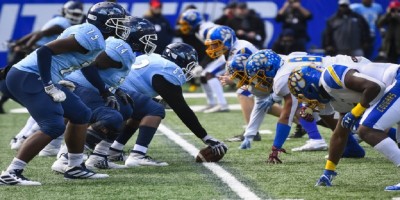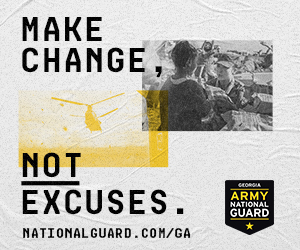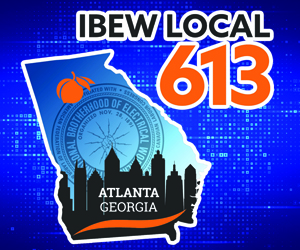
By: Craig Sager II
The question of whether or not football will be played this fall has lingered ever since spring practices and the spring sports’ seasons were cancelled as part of a national effort to prevent the spread of COVID-19 this past March. In the months that followed, safety guidelines and protocols have dictated how activities were to be conducted from professional leagues all the way down to the high school level. While the spread of the virus continues to be a concern for the NFL, College Football and High School Football alike, certain disparities between the tiers such as the availability of mass testing, sophisticated contact tracing and state-by-state decision making at the high school level has left them each with a distinct set of crossroads and concerns.
Late Sunday evening, and throughout the early hours of Monday, news began pouring out about the 2020 college football season that casted serious doubts on whether or not a season will happen this fall. The trend began in earnest with a string of cancellations that included both DII and DIII cancelling their fall sports championships, and the proverbial dominoes continued to fall. UCONN soon after became the first FBS program to cancel its fall sports seasons and then the Mid-American Conference (MAC) became the first FBS Conference to cancel its fall sports this Saturday.
“Clearly we are charting a conservative path — and it is one that has been recommended by our medical advisory group,” said MAC commissioner Jon Steinbrecher. “There are simply too many unknowns for us to put our student-athletes in situations that are not clearly understood. We have traditionally been a leader on student-athlete well-being issues. This has not been an easy decision. For the Mid-American Conference, it is the right decision.”
Despite all of this, the Power 5 conferences, which all recently adopted to go with in-conference schedules, were still believed to be in pursuit of a season until inside sources reported that the Big Ten and Pac 12 were on the verge of pulling the plug on the season late this weekend.
When the news came out, social media erupted with high profile players and coaches that compete within the Power 5 conferences launching a “#WeWantToPlay” social media campaign that spread throughout the fanbases and eventually made its way up to the Presidency Monday afternoon with Donald Trump tweeting “Play College Football!” The noise generated online has led to the two conferences taking back the initial report, and at this time chaos is erupting at a historic degree in regards to the college football season. Nebraska and Iowa’s University Presidents were reported to be the only programs within the Big Ten that voted in favor of playing this fall. This prompted U.S. Senator Ben Sasse, who served as President of Midland University in Nebraska from 2010-14, to issue a response on Monday with a letter addressed to the Presidents and Chancellors of each Big Ten institution.
“We should not cancel the college football season. Life is about tradeoffs. There are no guarantees that college football will be completely safe—that is absolutely true. It’s always true. But the structure and discipline of football programs is very likely safer than what the lived experience of 18-to-22-year-olds will be if there isn’t a season.”
“As a former college president, I know many of you actually agree—because I’ve heard multiple presidents say it when the cameras aren’t rolling. Justin Fields and Trevor Lawrence have made similar points persuasively: Cancelling the fall season would mean closing down socially-distanced, structured programs for these athletes. Young men will be pushed away from universities that are uniquely positioned to provide them with testing and health care.”
“Here’s the reality: Many of you think that football is safer than no football, but you also know that you will be blamed if there is football, whereas you can duck any blame if you cancel football.
“This is a moment for leadership. These young men need a season. Please don’t cancel college football.”
While the situation rages on at the college level, there are prominent high school coaches in the state of Georgia that are doing what they can to offer proposals that will build off the GHSA’s current protocols in order to increase the chances for the season to start the week of Sept. 4—even as the number of cases and hospitalizations in the state remain a major concern. McIntosh County Academy Athletics Director and head football coach Bradley Warren and Stephens County head coach Wesley Tankersley, have been working together on the proposal they believe will allow greater flexibility in safely holding a season. The two coaches joined Monday’s episode of “Georgia Prep Sports: From a Distance” to detail their plan.
“We’re different than a lot of other places in the state and that really boils down to the whole problem,” said Warren. “There are different areas with different needs. You have a rural area like us that is ready to play and the numbers are low. Then you have other areas were the numbers are high and they are not ready. As far as we go, we have not had any positive cases in our program and we are ready to play like a lot of other programs are. So playing is a direct extension of the GHSA’s current plans. It just allows for an optional start date.”
Coach Tankersley and Warren were asked how a high school football season could be played if college football were to cancel its season.
“In college, you have a lot of different conferences and that is part of what the players association is trying to get accomplished to make sure that the safety protocols are consistent across the board so that when they play someone they know that they have met the standards,” said Warren. “At the high school level, we have been in pods since June 8 with screen tests since then too. So if coach Tankersley has been doing what he is supposed to be doing with his team and if my team has also been doing what we are supposed to be doing, then we are okay to play because we are free of COVID.”
Tankersley was asked the same question and advocated for decisions at the high school level regarding football this fall to be made on a district or local basis.
“I think that is all a part of Bradley’s plan, to leave it up to the individual districts so we can work this out. For us, our kids have been there every day and they want to play so I think we should leave it up to these individual districts, the players and the parents on whether or not they want to play.”
From there, Warren went into detail about how his plan to have a state-wide ‘start-in option’ could buy time for areas that are currently being impacted with high COVID cases and disruptions.
“I am on the football committee for the GHSA and am the Region 3-A representative in South Georgia,” said Warren. “We saw Dr. Hines’ plan which is a lot of what you discussed already with the closures. Dr. Hines in his meeting this past week with the 50 Superintendents and Southwest and Southeast Georgia described the situation as kicking the can down the road and that he wanted to see the numbers go down below 10 percent, and this morning they were down to 8.2 percent. So it is a delayed plan and we already delayed the start of the season two weeks. So what we have done is mirror the GHSA and Board of Director’s current plan in that we want to start on Sept. 4. The first two times we have tried to start and reopen for team activities, not everyone has been ready to start, so what we have done with this model we are proposing is that we want to move together as one unit and start. When you know that COVID hits different areas at different times or with more outbreaks, our plan gives each local district and school system options of when they want to start. So we understand if you have a COVID outbreak that you are forfeiting a ball game and that there is no financial penalty for that. So the optional start-in option will give places, and you mentioned Jasper Jewell with Atlanta Public Schools, it will give places like that the autonomy to start say at region play if they are still dealing with high case numbers. There are only three regions in the state of Georgia that are over eight teams. So if you start with that, most region play is going to come in during mid to late-October. That gives some of those schools the autonomy to delay and not necessarily have to cancel their whole seasons so early as they have a greater chance get their numbers down. That also gives, instead of having to do it by a week-by-week forfeit, if you know that some of the teams you are playing are going to go ahead and start by region, then the schools that are healthy and are ready to play can go ahead and pick some like-minded schools.”
As we wait and see what the GHSA’s next move is, prominent health officials continue to question how a contact sport, such as football, could be played as cases around the state remain a concern. Children’s Healthcare of Atlanta Pediatric Sports Medicine Primary Care Physician Dr. David Marshall is a member of the GHSA’s Sports Medicine Council and was featured on Friday’s episode of ‘Georgia Prep Sports: From a Distance.’ He was asked if he would feel safe letting his kid play football this upcoming season.
“I think we have to be responsible and take care of each other and I just wouldn’t let my kid play right now,” said Marshall. “I agree as we go through life we make decisions and many times we make our decisions based off of risk benefit. You have to weigh that ratio, do you rent or do you buy, do you get the small part now or the big part, do you have a hamburger or hotdog? Right now, with the way the COVID numbers are today, I think the risk of playing a contact sport outweighs the benefits. And granted, kids need sports, we can talk about the benefits of sports and extracurricular activities for self-esteem, mental health and all of that. I understand that kids need these things, but at what cost? At some point you have to look at particular activity and ask if the risk of getting injured, getting sick and bringing an illness back to a vulnerable family member, and ask if that outweighs the benefits of playing and if the answer to that is yes, then you shouldn’t play. If they think the answer is no and the benefits outweigh the risks, then it would be okay to play.”
Having vulnerable family members at home has been a point of emphasis throughout these discussions. Some feel that college sports would be safer because athletes are isolated on campus and would not be coming home to a vulnerable family member at the rate that a high school football player would be. Kennesaw Mountain head football coach Caleb Carmean, offered a rebuttal to that in his segment on Monday’s show, stating that having that second set of eyes on each of his players and working with parents through this was something that could actual help him and his staff keep a safer environment.















































































